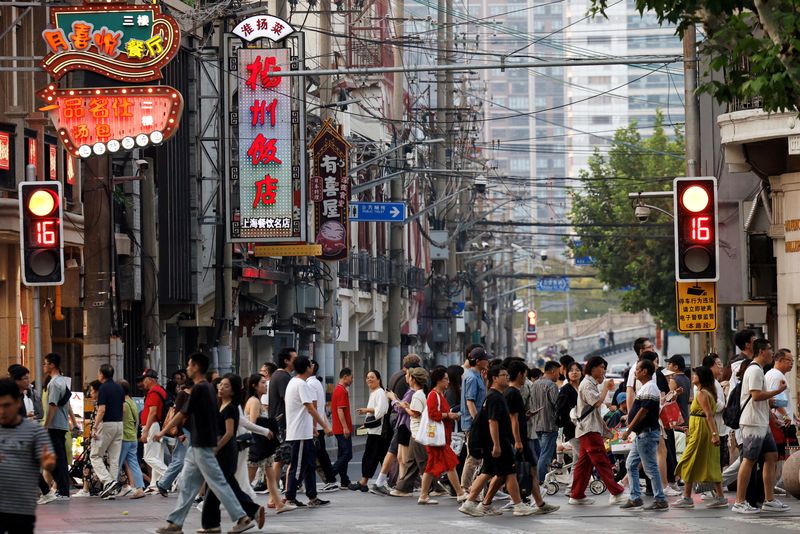BEIJING (Reuters) – China authorised a value-added tax legislation on Wednesday to take impact on Jan. 1, 2026, the official Xinhua stated, bringing into one doc earlier laws which have included exempting objects from the tax.
VAT, the most important tax class in China, accounted for round 38% of nationwide tax income in 2023, official knowledge present.
The report didn’t element provisions of the legislation. The most recent draft included exemptions for some agricultural merchandise, imported devices and tools for scientific analysis and educating, some imported items for the disabled and providers supplied by welfare establishments equivalent to nursery, kindergarten and nursing establishment for the aged.
To help particular sector or enterprise, the federal government might embody new objects into the scope of tax deductibles.
“With the introduction of the VAT Law, 14 tax categories out of 18 in China have their own laws, covering the majority of tax revenue and marking significant progress of implementing the principle of statutory taxation,” Xinhua stated.
The legislation was handed on the finish of a session of China’s prime legislature, the Nationwide Folks’s Congress Standing Committee, which started on Saturday.
Final month, China unveiled tax incentives on residence and land transactions to help the crisis-hit property market. Residents are exempt from VAT once they promote their properties at the very least two years after buy.
In September 2023, the finance ministry stated it could prolong a VAT refund coverage aimed toward encouraging home and overseas analysis establishments to buy Chinese language-made tools till the tip of 2027.
China in 2019 lower the VAT charge for producers to 13% from 16%, and to 9% from 10% for the transportation and development sectors.
With the slowing world’s second-largest financial system, VAT income within the first 11 months this 12 months dropped 4.7% from the identical interval final 12 months to six.1 trillion yuan ($840 billion), as companies suffered weak home demand. For November, VAT income rose 1.36%.

“The rebound in VAT reflects improving economic vitality, as sales and business activity recover. It may also indicate a recovery in industrial profits, further supporting economic momentum,” Tommy Xie, head of Asia macro analysis at OCBC, stated in a observe on Monday.
($1 = 7.2986 renminbi)




